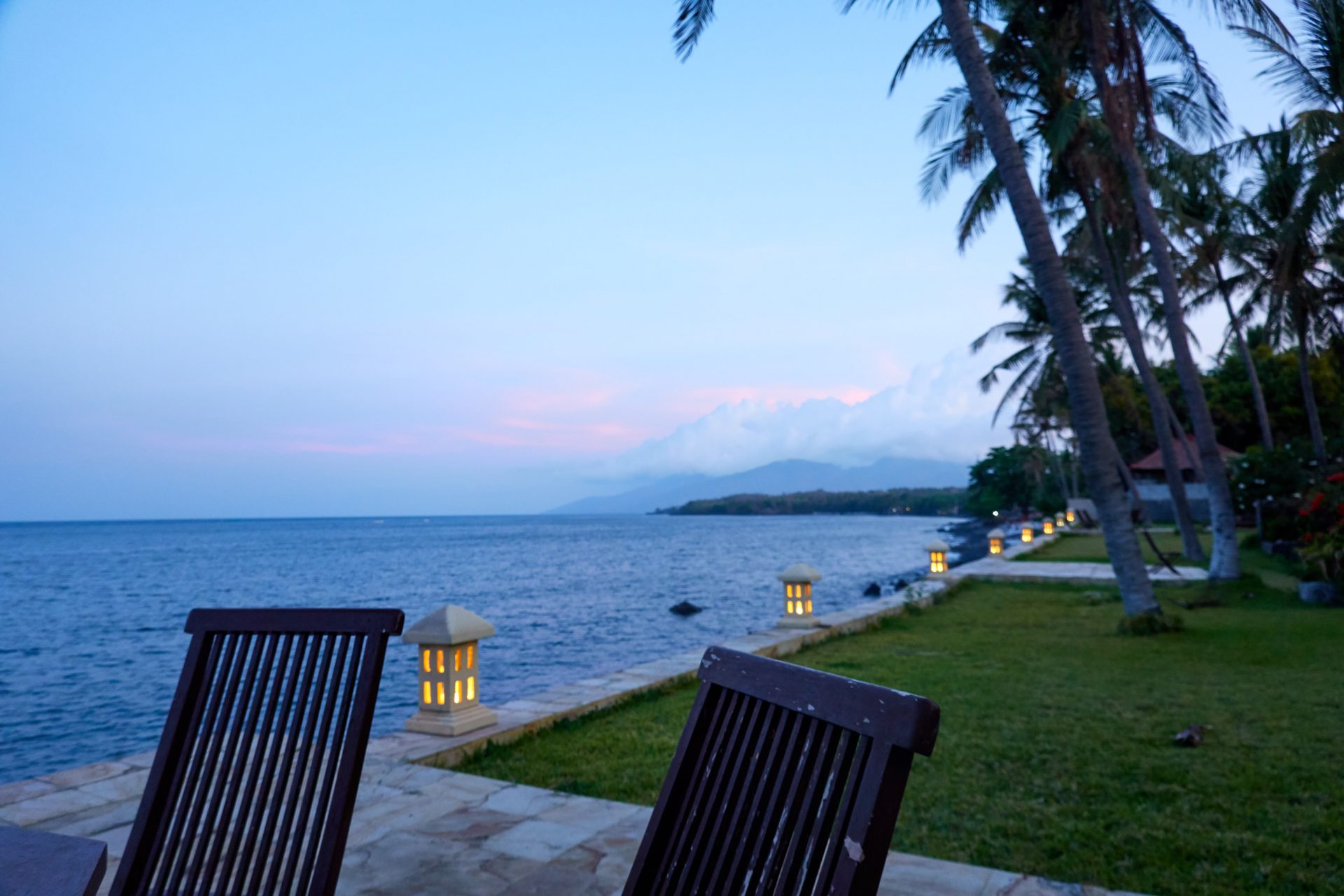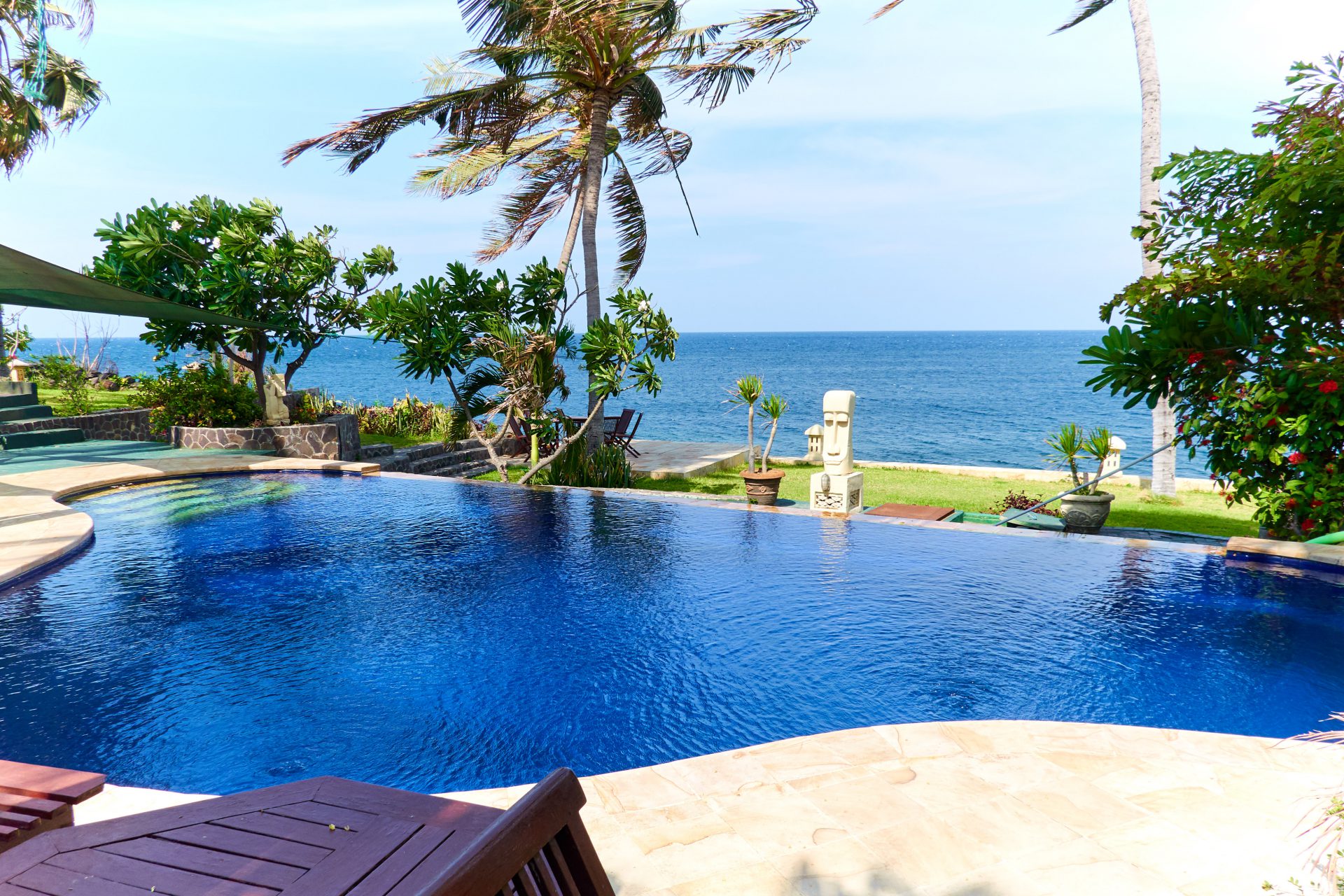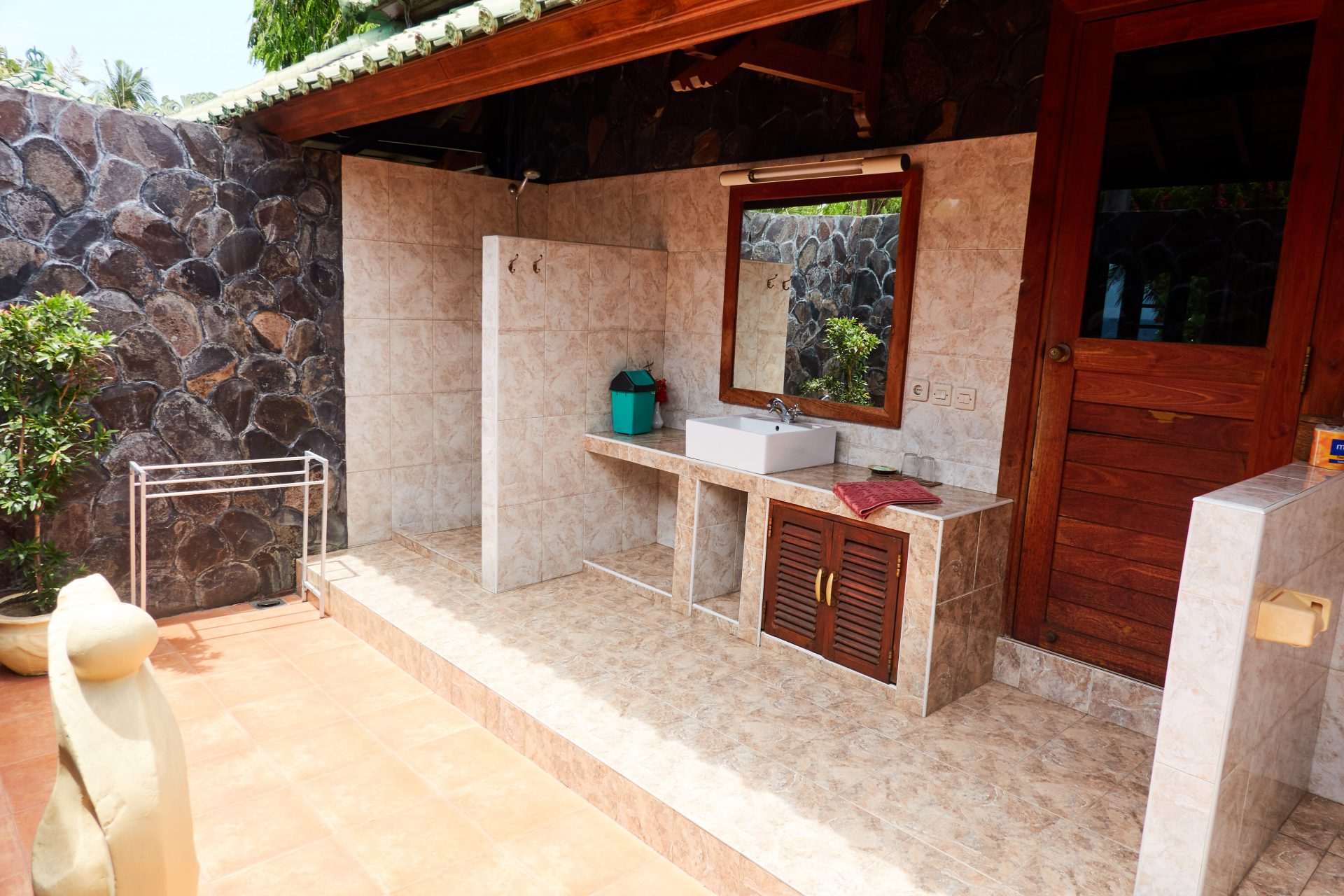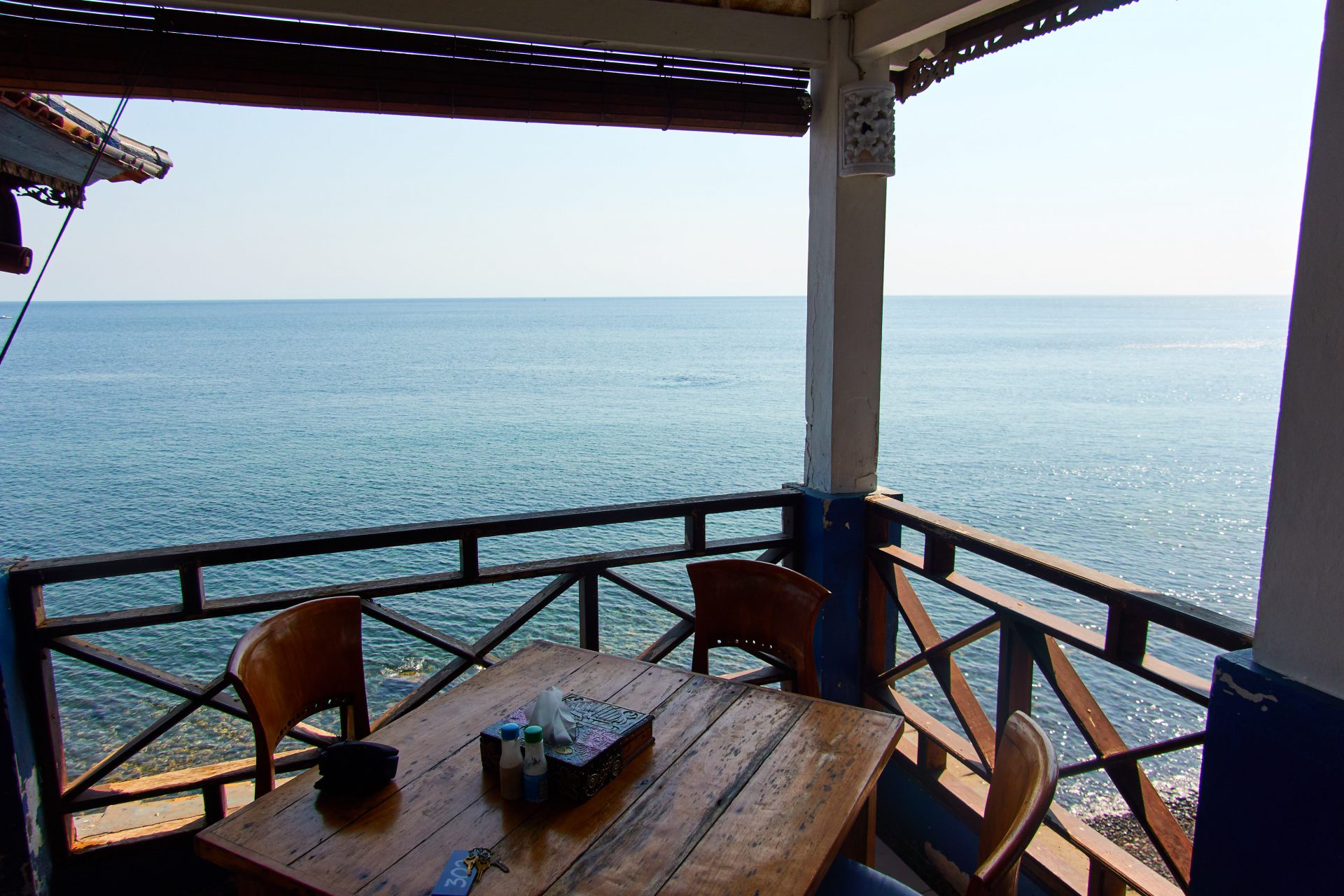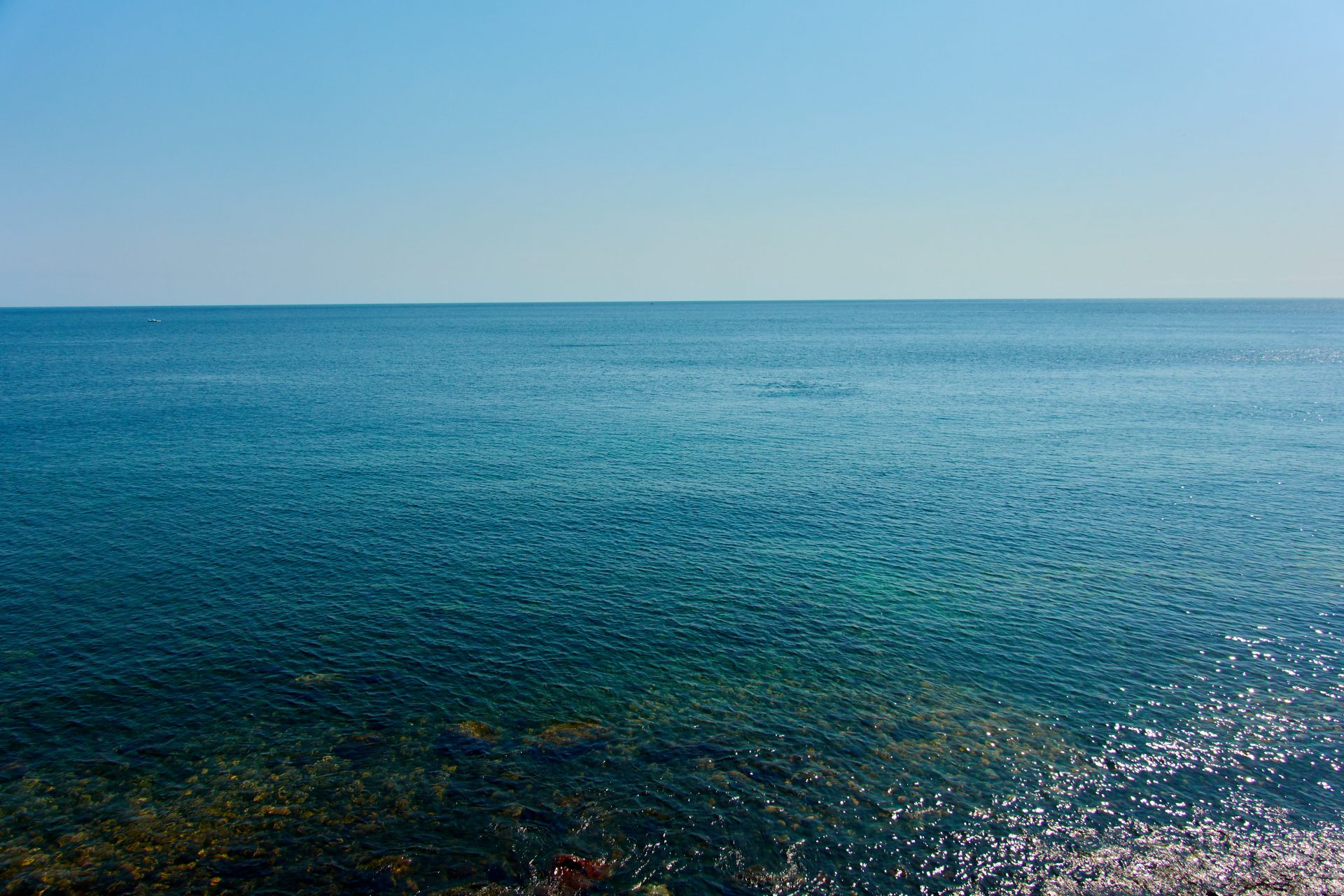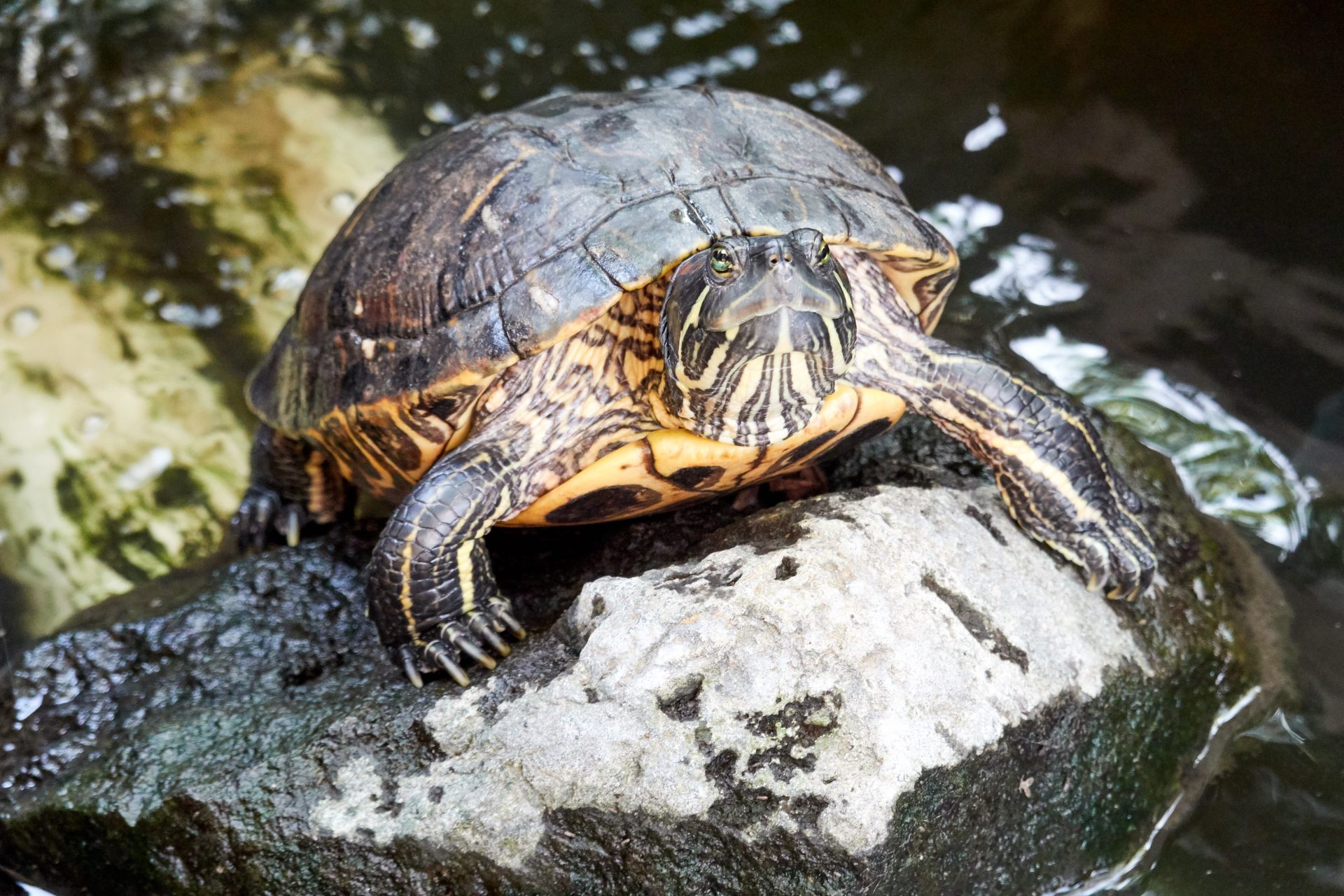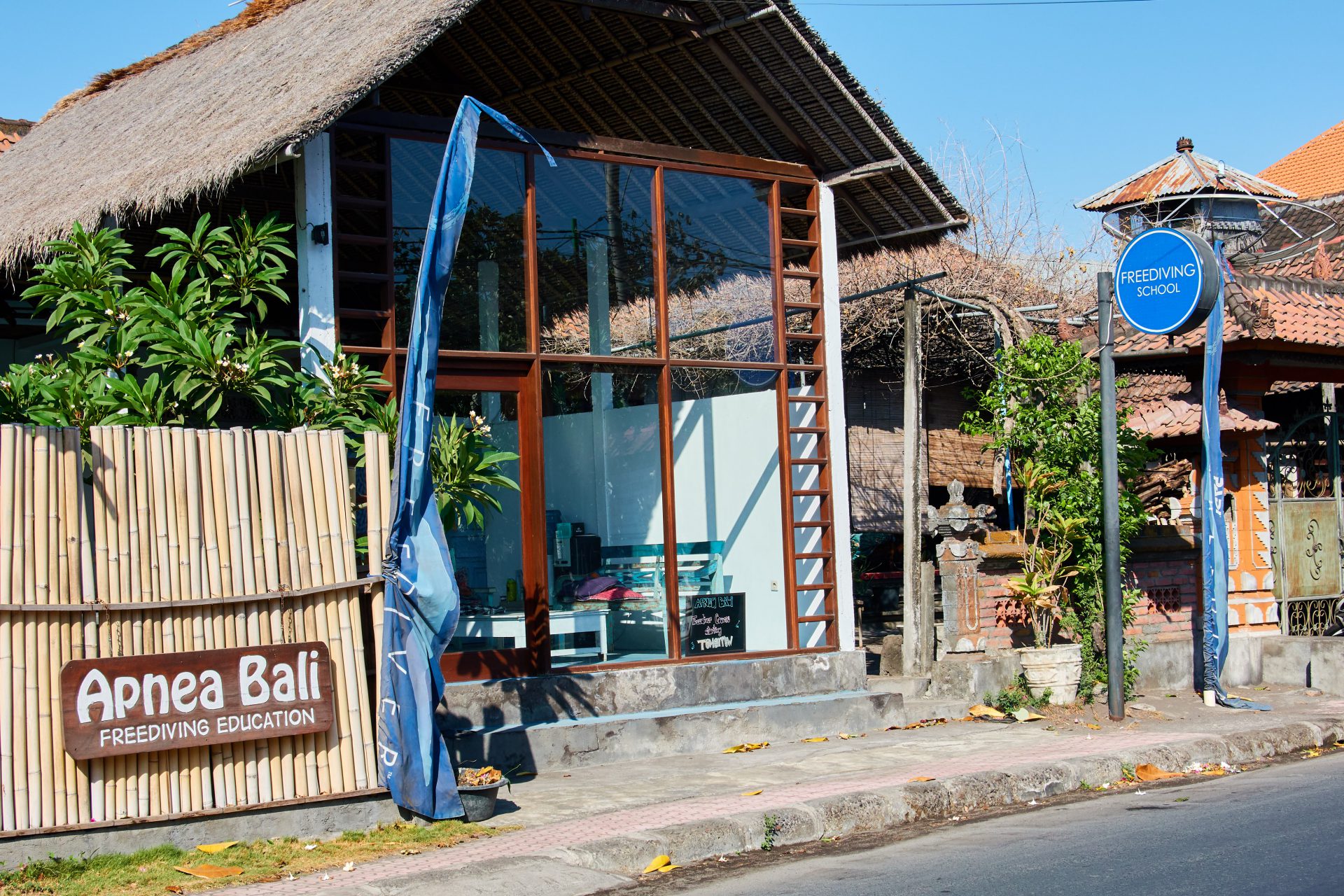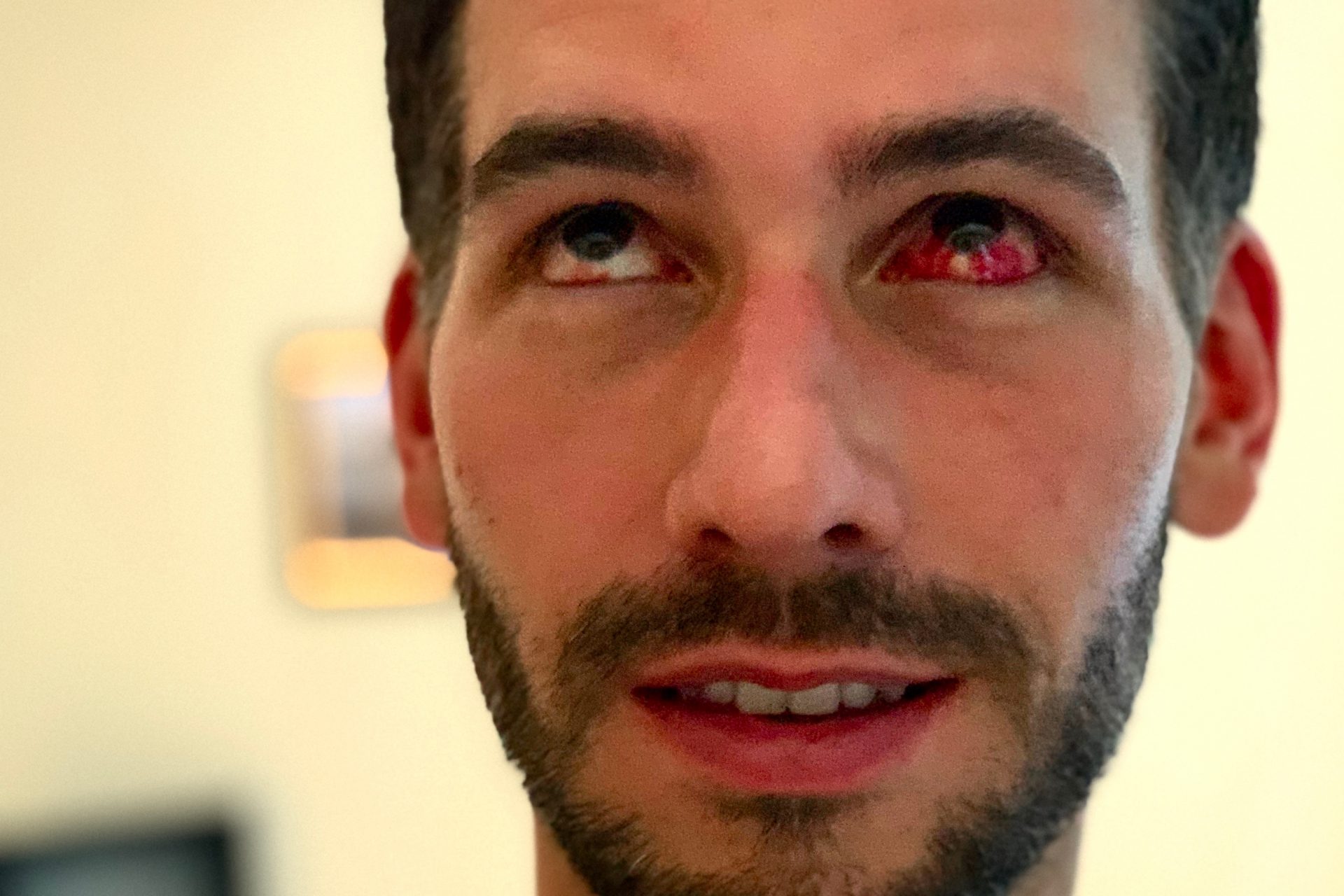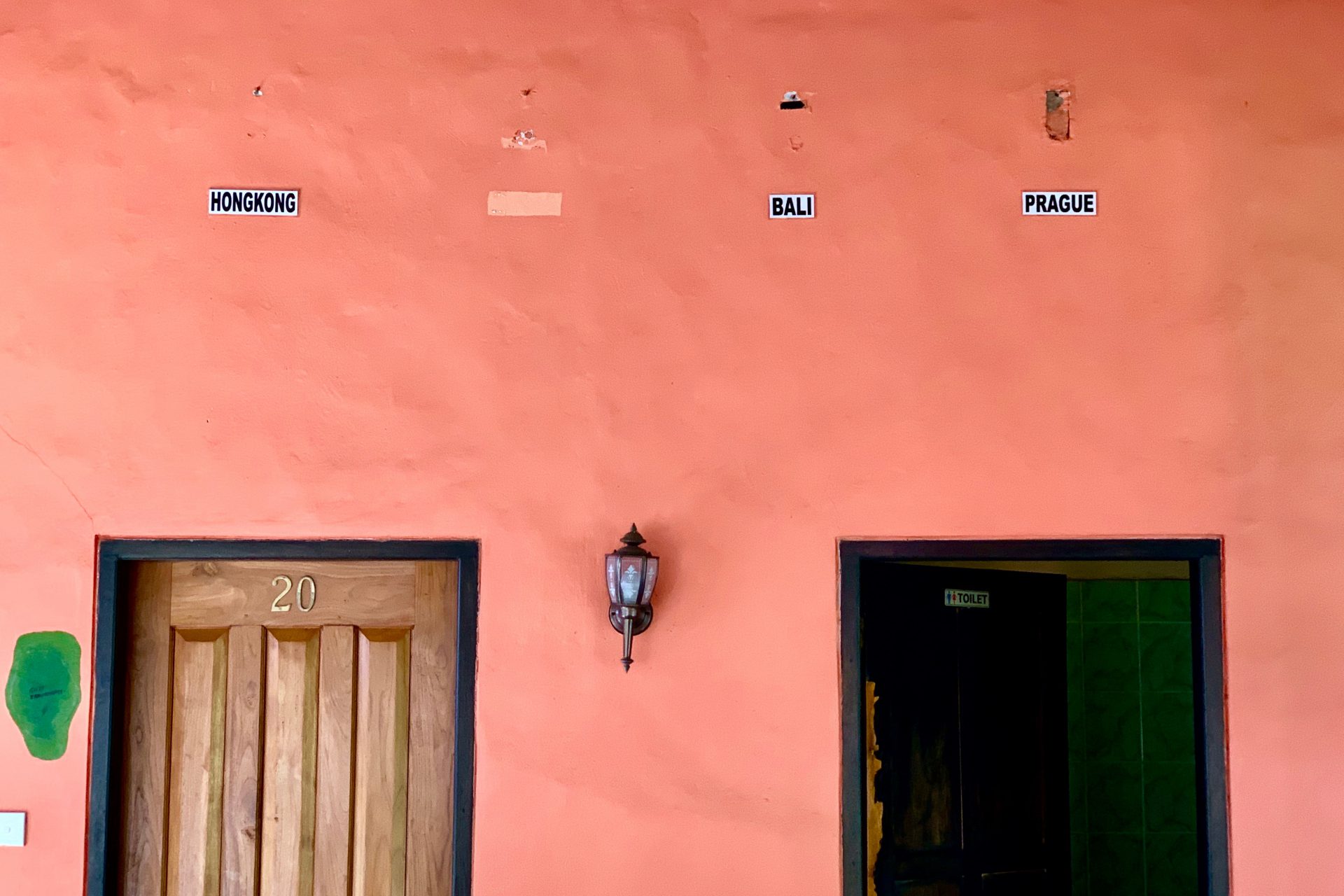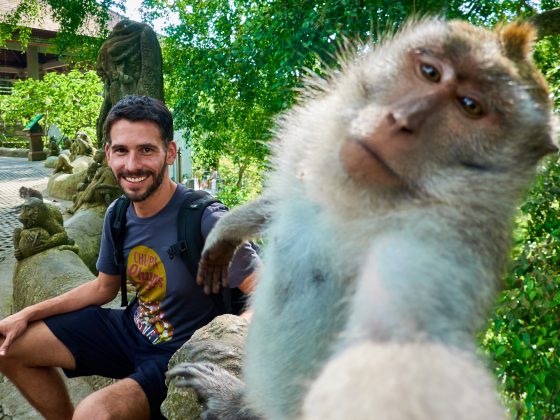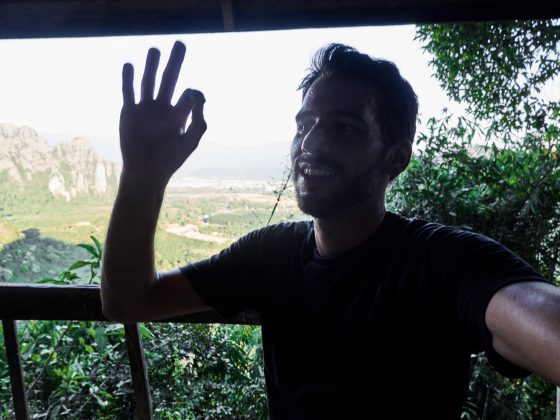During the few days I spent on Gili Air, I saw a Freediving school among the many dive centers. It looked empty, probably it had closed down a while ago, and they just didn’t care to remove the signage. It got me thinking though. I had obtained my diving license when I was 18, but never actually used it afterwards… for whatever reason. The scuba diving trip we did reminded me that it’s a lot of fun. The only thing is how complicated it all seems. All this equipment you need makes it impossible just to go… you have to book boat trips, pay a lot, and plan everything.
The idea of apnea diving, basically just holding your breath for a relatively long time while you’re moving underwater, sounded appealing to me. I’ve always felt very at home underwater. I remember always trying to sit on the floor of 3 to 5 meters deep swimming pools as a kid. I liked the prospect of going down way deeper than this and feeling comfortable without breathing for more than just a minute or so.
So I looked up a good area for learning freediving on Bali. A small village called Tulamben in the north of Bali is known for freediving for two reasons. First, the ocean gets deep very close to the beach. You don’t need a boat and can easily swim to a spot where the bottom of the sea is 75 meters below your feet. And second, there’s a 100 meters long US army shipwreck close to the coast.
Over the course of three days, me and one other student, Yukari from Australia, learned to lower our heart rate through simple breathing patterns as well as some exercises you can do to train your body for longer and deeper dives.
The first attempts in the open water are pretty daunting. You swim out a couple hundred meters into the sea with a buoy that looks like a swimming ring, attach it to a moored buoy out in the open water and then lower a weight on a rope as deep as you’re planning to go. On the first day, this was 12 meters for us. You then do your “breath-up” – a few minutes of very slow and deep breaths – taking in oxygen, lowering your heart rate and stretching your lungs for even deeper breaths. After your “final breath” (that they sometimes also call “big breath” because final breath sounds a bit dramatic), you go down head first.
I found it interesting that most of the stuff you learn while scuba diving doesn’t apply to freediving. Scuba divers descent and ascent slowly. Freedivers go down as quick as possible, usually as quick as they can equalize the increasing pressure on their ears. And when it comes to going up again, there’s basically no too fast. The slow ascent applies only when you’ve spent a long time in deep waters, and even the most skilled freedivers don’t spend that much time down there.
After a certain depth, for most people it’s around 10 meters, your lungs are compressed so much that you reach negative buoyancy. That means, the volume of your body decreases while the overall mass stays the same – and you sink. In Apnea diving this is called “Free Fall”. Without any efforts and not moving a single muscle, you just fall down deeper and deeper, getting faster in the process. A creepy and beautiful feeling at the same time.
A not-so-beautiful feeling are the involuntary contractions of your diaphragm that start after you’ve been holding your breath for some time. Up until now I would’ve interpreted them as a sign of being close to starting to breathe water and drown, but that’s wrong. (Your mammalian diving reflex – among other things – actually prevents you from ever trying to breathe water, so you would only blackout at some point.) You can go quite a long time after they start, even though it feels wrong. Fighting them only costs energy, accepting them is the trick. One of our instructors told us to “embrace the contractions”. 😅 Alright then. If you see me face-down in a swimming pool, my body doing twitching movements, no worries! I’m not dying, just training. 😉
I know, this is not a competition, but I made it to 20 meters deep. And also 3 minutes and 20 seconds underwater statically.
BTW… the temporary lack of oxygen doesn’t kill your brain cells and make you dumb. I think. If you observe my intellect degrading over the next couple of weeks, maybe inferring from the number of typos per post or the overall style, please let me know, thanks. 🤪
